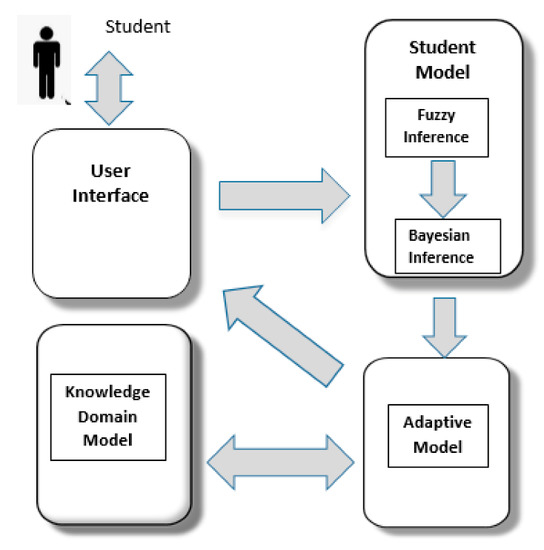Facts About Bioinformatics Tutor Revealed
Facts About Bioinformatics Tutor Revealed
Blog Article
The Buzz on Bioinformatics Tutor
Table of ContentsNot known Details About Bioinformatics Tutor Bioinformatics Tutor - An OverviewThe 45-Second Trick For Bioinformatics TutorFacts About Bioinformatics Tutor UncoveredHow Bioinformatics Tutor can Save You Time, Stress, and Money.
Preliminary job advancement is rather taxing, as it entails cautious planning of the topic, structuring of deliverables, and consideration of the abilities and experience degrees of individuals. Once a task has been plainly defined and implemented, it has the potential to be recycled in future sessions with only minor revisions to reflect updates in the area or fit differences in individual backgrounds. This makes project-based learning a reliable and lasting mentor strategy in the future, specifically in swiftly progressing disciplines like bioinformatics.To make certain continuity and reproducibility of knowing, giving common lab note pads-- either physical or digital-- is critical. These notebooks work as collective logs where students can videotape their progress, code, approaches, and results throughout the course. Not only do they strengthen knowing by urging paperwork and representation, but they additionally offer as post-course reference products that participants can seek advice from in future research or academic tasks.
Coaches play an important duty in the success of project-based courses. Preferably, advisors ought to be energetic researchers with a thorough and up-to-date understanding of both the theoretical foundations and functional applications of bioinformatics in their particular techniques. Their ability to bridge complicated principles and real-world execution is crucial in aiding students navigate the difficulties of interdisciplinary study. Advisors also act as role models and influence students to continue pursuing professions in computational biology and associated fields.
Bioinformatics Tutor Can Be Fun For Everyone
One more key aspect of the knowing process is providing individuals the opportunity to offer their work to others, particularly to an audience past their instant project team. Last presentations or mini-conferences enable trainees to verbalize their findings, receive useful comments, and gain confidence in interacting clinical content. This presentation element is often a favorite amongst pupils, as it verifies their efforts and highlights the real-world significance of their work.
Each model of the program was fine-tuned based on participant comments and advancing best methods in rearing. Bioinformatics Tutor. These adjustments ensured that the core objectives-- hands-on understanding, collaboration, and applied analytic-- remained intact while broadening the deepness and breadth of subjects covered.
A noteworthy visualization that caught individual belief was a word cloud created from feedbacks to the 2014 end-of-course study. This visual comments strengthened the program's emphasis on experiential learning and mentor assistance.
The payments of individuals such as Rustici, G., Orchard, S., Cowley, A., and Twells, R., along with other participants of the EBI user-training-working team, contributed in improving the program framework and material. Their insights helped form a comprehensive and versatile version that might be adapted to various institutional and local contexts.
What Does Bioinformatics Tutor Do?

Jones, Rasmussen, and Moffitt (1997) additionally supported for interdisciplinary discovering with collective job job, noting its ability to simulate professional settings and prepare students for future academic or industry roles. In a comprehensive review, Thomas (2000) analyzed numerous researches on PBL and wrapped up that trainees not just carry out well academically but also create a much deeper understanding of the topic and improved teamwork skills.
In the context of bioinformatics education and learning, ingenious techniques like classroom video games and simulation-based training have actually additionally been utilized. As an example, Schneider and Jimenez (2013) introduced making use of interactive games to teach organic data combination, allowing students to realize complicated concepts via experiential understanding. This type of gamification complements the find hands-on understanding emphasized in project-based courses by presenting an element of enjoyable and competition, which can additionally enhance interaction.
Going back to the training course talked about below, the lessons learned from the execution of project-based knowing in a bioinformatics look at more info establishing have broader ramifications for various other STEM fields. The technique emphasizes not simply technological proficiency, however likewise communication, collaboration, and critical thinking-- abilities that are increasingly valued in both academia and sector.
Bioinformatics Tutor Can Be Fun For Anyone
The scalability of the training course format likewise makes it a feasible version for other establishments. With suitable modification based upon local needs, offered sources, and participant profiles, the framework can be duplicated or adjusted for usage in various other scientific domains. Additionally, the inclusion of structured mentorship and evaluation approaches aids make sure constant high quality and measurable knowing outcomes.

Finally, project-based knowing in bioinformatics provides a powerful strategy to training facility, interdisciplinary content in a manner that is both available and intellectually stimulating. By stressing cooperation, functional application, and important questions, such campaigns not only enhance specific discovering however also add to the farming of a brand-new generation of knowledgeable and ingenious scientists.
The Basic Principles Of Bioinformatics Tutor

An additional key facet of the learning look at this website procedure is giving participants the opportunity to provide their work to others, specifically to an audience past their immediate project team.In the wider educational literary works, project-based knowing (PBL) has actually been extensively studied and verified as an effective approach for promoting deep understanding, essential thinking, and transferable abilities. Adderley et al. (1975) emphasized the worth of project approaches in higher education and learning, noting that they advertise active understanding and freedom. Schneider and Jimenez (2013) presented the use of interactive games to instruct organic data combination, making it possible for trainees to realize complex ideas via experiential knowing.
Report this page